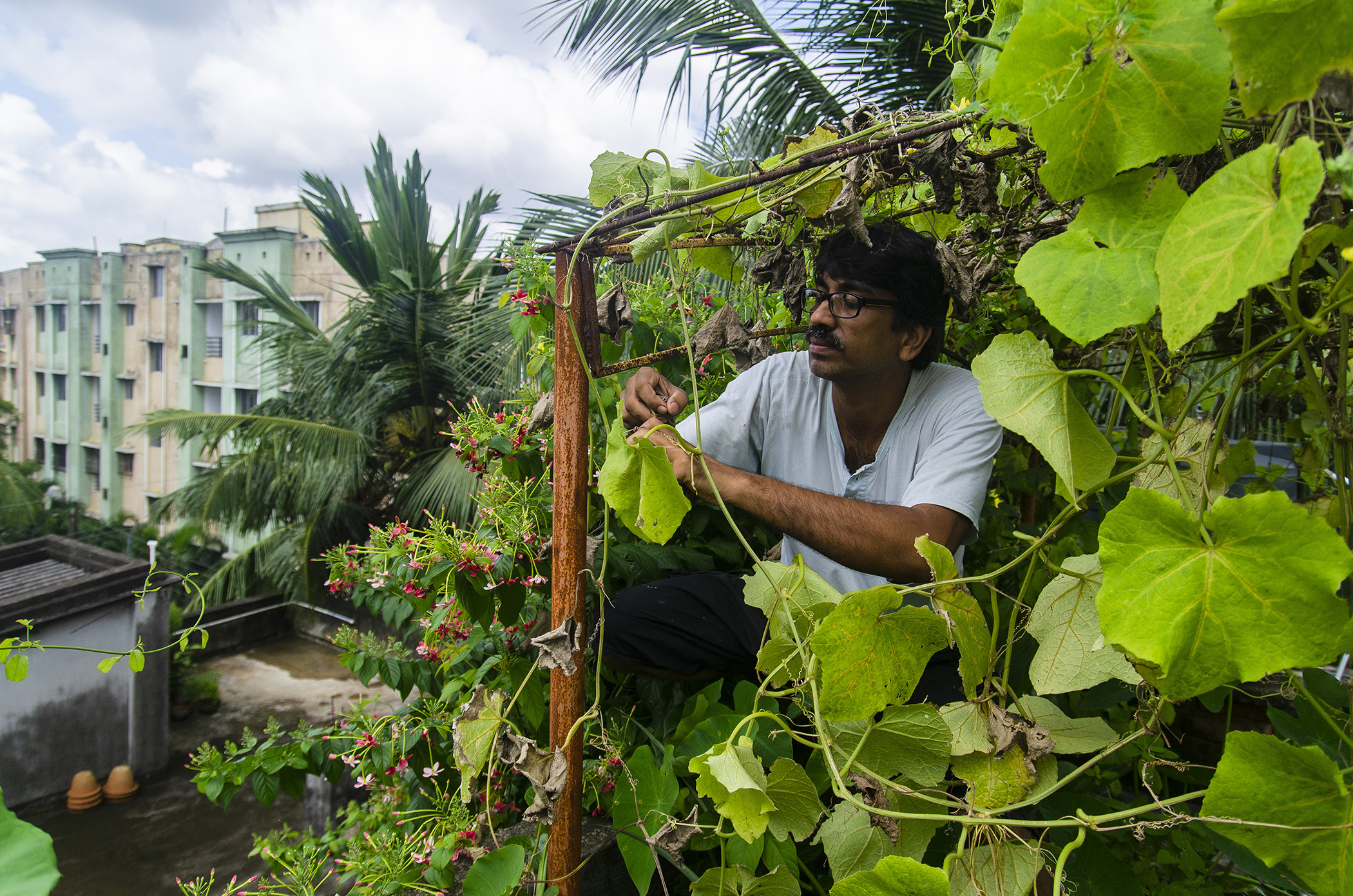
ANNUAL REPORT
2022
Man working on his rooftop garden, India by Sudip Maiti, Winner of the CIDSE 2022 photo competition (professional category). © CIDSE
foreword from the president
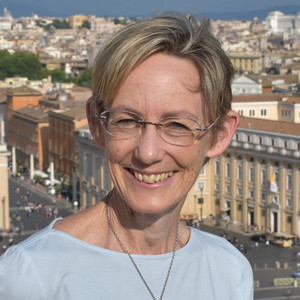
2022 saw a convergence of global crises: the unequal impact of the global pandemic, rampant inflation, an increase in food and energy insecurity, a rapid succession of humanitarian crises and climate disasters, and the illegal invasion of Ukraine by Russia. The crises we are facing are not isolated but deeply interconnected: they are linked by structural systems of injustice and exploitation; the blind belief in infinite growth, and an increase in autocracy. This is devastating our planet and fuelling social injustice, with the most marginalised and vulnerable people finding their right to live in peace and dignity under constant attack.
CIDSE has identified the current system of power imbalances as a fundamental driver of poverty and injustice. We believe that the most affected and vulnerable people and communities should be at the centre of processes of change. Their voices should be amplified, in terms of promoting transformative alternatives and allowing systemic change to become a reality.
2022 was a “transition year” for CIDSE. We invested in a participatory process of designing a powerful strategy which will guide the network until 2028. Our members, along with allies and partners from different parts of the world, were invited to join the collective reflection. The learnings from our previous strategic framework were analysed and changes made to address new challenges. Questions around the ways in which we define and measure our success and impact and how we undertake monitoring and evaluation led to the adoption of a new approach to monitoring, evaluating, accountability and learning.
In addition to this important process of strategy development, we had some very notable achievements across our three areas of focus in 2022, I.e.:
- Connecting and mobilising: the African Climate Dialogues brought together Church and non-Church civil society actors from Africa and Europe in the run up to the COP27 climate conference in Egypt.
- Influencing: CIDSE supported a delegation of West African community representatives to visit the EU and to carry out advocacy in relation to the Belgian company SIAT. The company has been accused of appropriating the community’s land and of human rights abuses.
- Storytelling: CIDSE’s first podcast was launched: I.e. a mini-series of 3 episodes exploring feminist agroecology in collaboration with the Centre for Agroecology, Water and Resilience (CAWR) from Coventry University.
I invite you to discover more of our achievements and challenges over the past year and hope you will enjoy reading this annual report.
Caoimhe de Barra
Chief Executive Officer, Trócaire (Ireland), President of CIDSE
BEST of 2022
ACTING For Change
Connecting & Mobilising
We co-organise and participate in spaces for our members, allies and partners to exchange knowledge and experiences. These meetings and platforms of exchange facilitate the real relationships needed for practicing solidarity across movements, and accelerate impact by learning best practices. These spaces also provide a process for us to accompany social movements, as they connect with different actors and are introduced to opportunities to participate in policy processes.
Below are some highlights of CIDSE’s connecting work in 2022:
Influencing
We lobby high-level decision makers and participate in policy-making processes at crucial moments to push for just institutions. The policies we push for are informed by the knowledge and experience of our partners and members, and we in turn can provide them with our observations of the developments of international policy processes, so that together we can take advantage of opportunities for transformative policies.
Here are some highlights of CIDSE’s advocacy work in 2022:
Storytelling
CIDSE has been experimenting with new forms of media over the years, to bring our perspectives and proposals to targeted audiences to challenge mentalities and open the way for fresh dialogue. With storytelling, we can envision new alternatives, we learn to articulate clearly our positions, and we express our connection to others and our common home.
Here are some highlights of CIDSE’s storytelling work in 2022:
coming up
GOVERNANCE STRUCTURES AND FINANCE
Board of Directors
The Board of Directors is composed of the Directors of the CIDSE 18 member organisations. The Board meets once a year and is responsible for the general running of CIDSE, in particular for reviewing current activities and formulating policies for the future.

In 2022, CIDSE paid farewell to Peter van Hoof (Vastenactie/The Netherlands) and welcomed his successor, Marc Bollerman.
EXecutive Committee
The Executive Committee is the implementing and supervising arm of the Board of Directors.
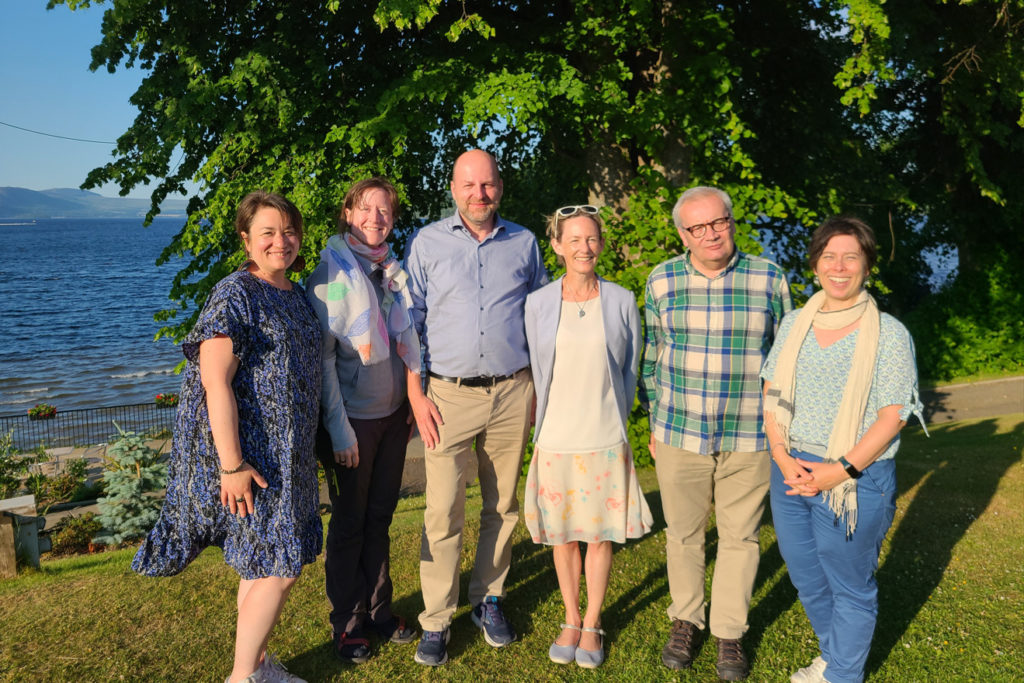
President: Caoimhe de Barra (Trócaire)
Members: Anja Appel (KOO), Axelle Fischer (Entraide et Fraternité), Bernd Nilles (Fastenaktion), Ricardo Loy (Manos Unidas)
Secretary General: Josianne Gauthier (CIDSE)
Ecclesiastical Assistant: Mgr. A. Tesfaselassie Medhin (Eparchy of Adigrat/Ethiopia)
Treasurer: Thomas Vercruysse (Entraide et Fraternité)
The Ecclesiastical Assistant, the Treasurer and the Secretary General are non-voting members.
Working groups
CIDSE member organisations work together in working groups, platforms and fora on the issues defined in the strategic framework. The CIDSE Secretariat facilitates the working groups and ensures communication between the member agencies and the overall coherence of CIDSE’s work.
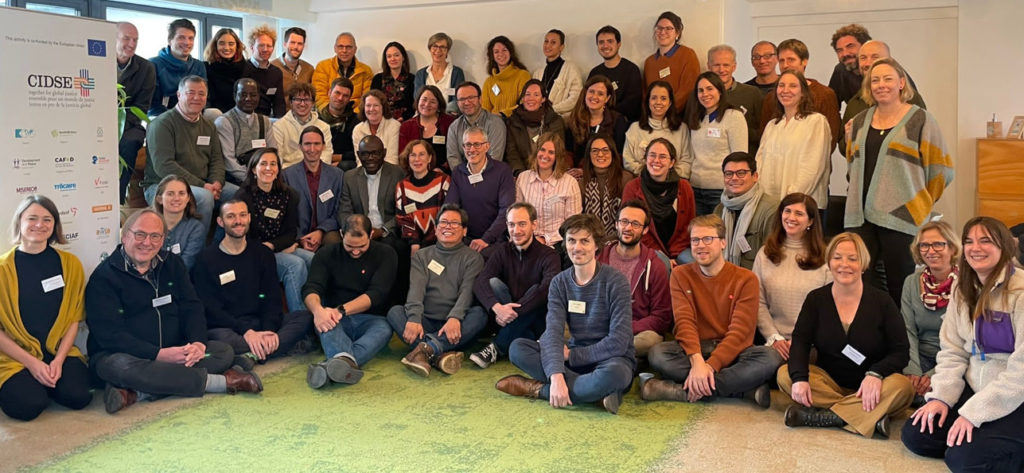
Finance
The CIDSE network is funded by membership fees and additional resources from its members for special projects.
In 2022, CIDSE received external funding from:
- The European Commission Directorate-General for International Partnerships (DG INTPA) as part of the Framework Partnership Agreement: “Experience, Learning, Sharing through joint action and strategic planning to achieve global justice.” (2019-2023).
- The KR Foundation, for the “Change for the Planet – Care for the People” initiative (2020-2022).
- The Porticus Foundation, for the project “Transformative advocacy towards integral ecology – Development of a new Monitoring, Evaluation and Learning (MEL) framework for CIDSE and its members” (2021-2023).
CIDSE is grateful to all its network members as well as to the European Commission, the KR and Porticus Foundations who have made it possible to carry the work presented in this report.
INCOME 2022
- Membership fees: € 1,111,350.00
- EC Framework Partnership Agreement: € 480,947.00
- KR Foundation: € 148,712.59
- Porticus Foundation: € 103,728.00
- Misc.: € 32,006.79
TOTAL INCOME: € 1.876,744.38
EXPENDITURES 2022
- Advocacy*: € 1.063.309,48
- Communication and networking events: € 387.254,15
- Administration and secretariat: € 244.441,23
* In 2022, CIDSE’s advocacy work covered the following thematic areas:
Systemic change, Communities regaining control over the commons, Facing climate change: Just and sustainable models for food and energy, sustainable lifestyles.
TOTAL EXPENSES: € 1.695.004,86
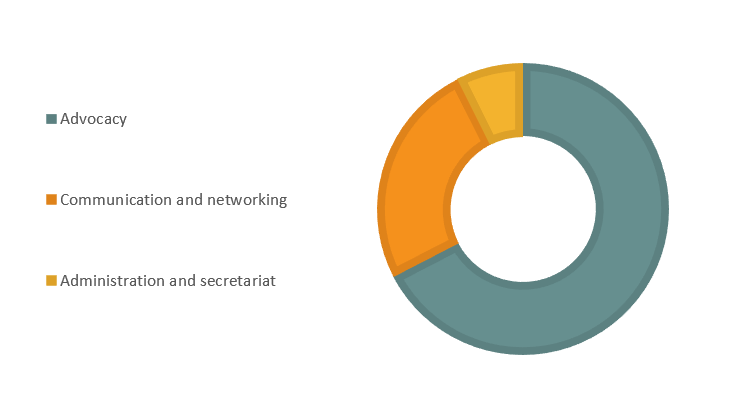
The CIDSE Secretariat also coordinated the following project in 2022:
- Israel-occupied Palestinian territory: € 79,922.67
CIDSE’s financial year begins on 1 January and ends on 31 December. The 2022 financial statements have been audited by an external auditor, Clybouw Achiel, Andre & Co bvba, Belgium, in accordance with the financial reporting framework applicable in Belgium. At the time of publishing this report, the auditor’s final report was still to be received.
ABOUT CIDSE
CIDSE (Coopération internationale pour le développement et la solidarité) is an international family of Catholic social justice organisations. We work with global partners and allies to promote justice, harnessing the power of global solidarity to achieve transformational change for people and the planet. We challenge systemic injustice and its destructive impacts through connecting, mobilising, influencing and telling stories of change. We promote environmentally and socially just alternatives to allow everyone to thrive in our common home.
CIDSE’s work promotes food sovereignty and land justice, addresses impunity and corporate power and explores the relationship between energy and extractivism, all the while striving for a model of sufficiency. We take a systemic approach to our thematic work, with a focus on human rights, decolonisation, feminism, climate and biodiversity justice, as well as on challenging prevailing economic and political systems and exploring alternatives.
To make this happen we contribute to global movements and alliances of change, promote peoples’ solutions and alternatives and advocate at the international level.
Our international secretariat is based in Brussels.
Our members
CIDSE brings together 18 member organisations from Europe and North America.
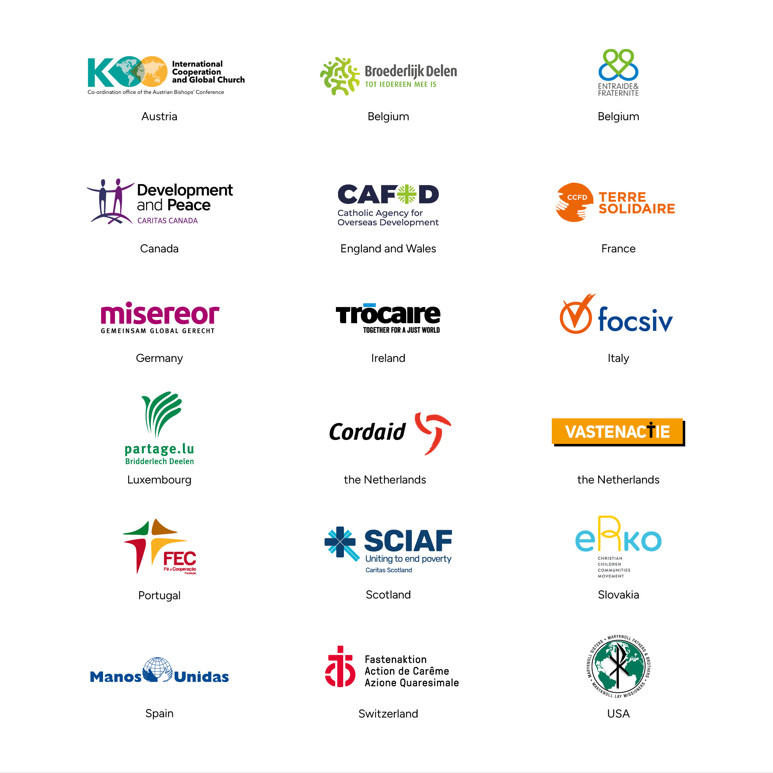
Collaborations
Our network works closely with diverse local and international alliances and organisations such as Caritas Internationalis, Caritas Europa, COMECE (Commission of Bishops’ Conferences of the European Community), Franciscans International, JESC (Jesuit European Social Centre) and the Laudato Si’ Movement.
CIDSE is a member of Concord, Climate Action Network-Europe as well as a founding member of the European Laudato Si’ Alliance (ELSiA).
Secretariat staff
The CIDSE Secretariat facilitates and coordinates the common efforts of its members, represents CIDSE at the EU and international levels and undertakes advocacy activities and other initiatives in collaboration with its members to contribute towards systemic change and global justice.
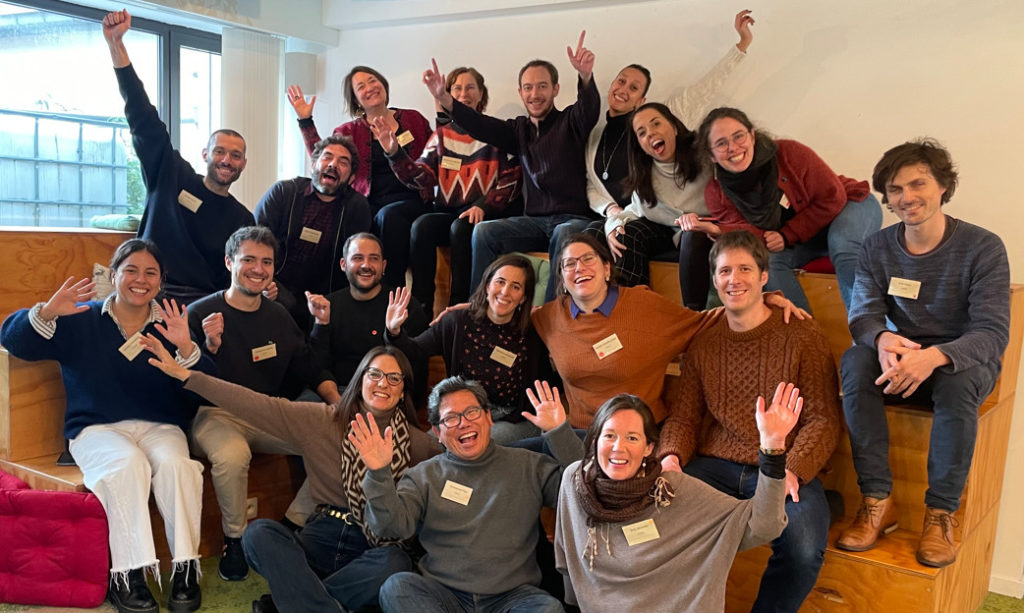
The Secretariat is organised into teams which coordinate different working groups to achieve its objectives.

We thank Emma Lunte, Anne Helder, Ida Paraskeva, Abid Ur Rehman, Bernardo Kaiser, Giovanni Penna, Bea Lambrecht, Wim Hendrix, Benedetta Tuccillo, Fanny Schmit for their valuable contributions to CIDSE’s work and mission.
External support
Amy Skinner, Monitoring, Evaluation and Learning (MEL) Consultant.
















































